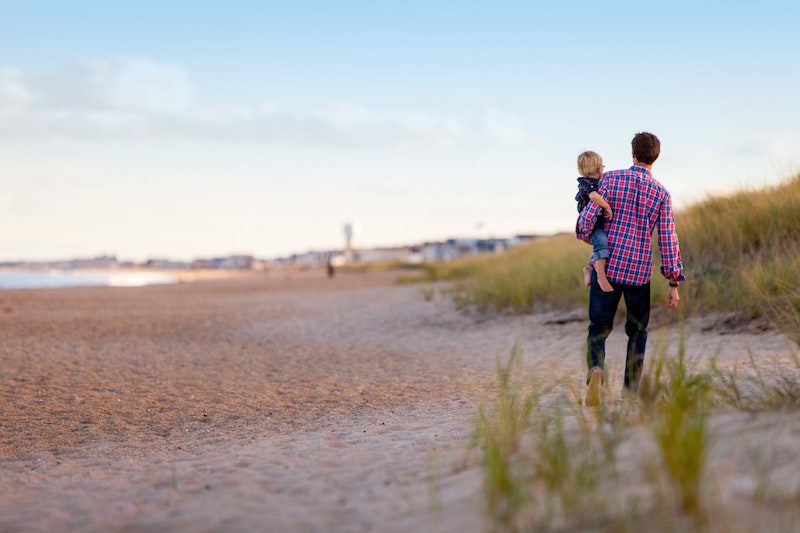My dad didn’t like his head being touched. It only came up once, that I remember. He was reading in an armchair when my brother, ten years younger than I, did something boyish, like running up and tousling his hair. Dad lurched away and protected his head, snapping, “Don’t touch my head! … I don’t like people touching my head…”
This was probably the biggest reaction I saw him have, to anything, because his emotions and reactions were always locked down pretty well.
Why does this matter now?
Something recently hit home for me about how I engage with others. My tendency is different to what I actually believe, in theory, about engaging with others and why we’re here on the planet. To illustrate the “theory” of how I’d like to engage with others, I found a quote from my teachers Doug and Catherine, something that was said during their two-week karma yoga retreat Buddhas in Action:
“It’s easier with others because you’re investigating. You’re supposed to be coming to the better understanding with others, and getting greater meaning.” **
Yes! We’re here to help each other wake up (and to have fun along the way!).
So this incident from nearly forty years ago came to mind today, because I realized something. I realized that it’s weird to me, given this strong childhood memory, that I don’t know why my dad didn’t like his head being touched.
I don’t have full recall of that evening, and yet obviously either I didn’t ask, or didn’t feel like I got an answer. So, something in me doesn’t expect much of an answer, doesn’t expect to get to the bottom of things. Part of me is way too quick to shrug, “I don’t know.” It might be family or cultural conditioning, of course, and yet the why is no longer relevant.
As a spiritual warrior, having seen the pattern, the idea is to see what happens when we consciously try to do something different.
Teachers can show us the blind spots
It’s on my mind because my teacher Catherine Sensei recently pointed out a couple of instances where this pattern of not engaging – in these cases, in fact, not challenging others – might be playing out, and hindering my compassion for others.
When something like this is pointed out by a teacher, or other spiritual friend, it’s our job as a spiritual warrior to look at it as honestly as we can. It’s not that we’re being asked to defend, or go back and fix something. Just to look at the pattern they’re pointing to.
So, one of the instances was that I didn’t challenge someone’s decision. They had canceled their plans to join us for spiritual teachings that I was helping to organize, in part because they had a strong feeling they would have an accident in the winter driving conditions along the way. In reply to their email, I wrote something like, “ok, maybe next time.” In that moment, I had decided not to try to engage with them about it. It was their choice of course, and yet, given the situation (coming to a spiritual teaching is something to be encouraged and supported, and sometimes people have a little freak out just before coming) and the person (who I knew), it might have been more compassionate of me to call them and talk it through, give them a chance to question their decision at least.
Please hear that this is not a black and white teaching or opinion on the topic of cancelations! The point is my pattern, my tendency in such situations. There are plenty of valid reasons not to challenge people.
So, if I look at the pattern being pointed to by my teacher, what was going on in the moment I replied? Did I not want to get involved personally? Was I just being lazy? Was I prioritizing something else, or perhaps influenced by previous interactions with that person in the past or recently? In this case, I’ll keep my insights about what was going on to myself.

This doesn’t mean that my tendency not to challenge doesn’t ever work for me. Sometimes, not challenging someone is the right thing to do to, and being sensitive to others when they need space is surely a strength. Yet, we also need to be able to speak up and not let a personal tendency be the deciding factor of whether we do or not. Otherwise, we’re not doing our best to make progress on the spiritual path easier with others.
15 years in as a spiritual warrior, I know that I do engage more than I used to. But my default is not to challenge others, and that’s what I defaulted to that day. And my default is not to challenge myself. The point here is not to beat up on myself, but to think, “how I can tweak this tendency, so I can make different decisions when I want to?”.
How do we know when to engage or challenge, and when not to?
I’ve reflected on some questions to contemplate when engaging with others, in no particular order, and largely based on words of learning from my teachers. I think they apply equally in terms of when engaging or challenging ourselves, too.
- What’s my motivation? Am I trying to contact wisdom and compassion? Or am I trying to stay comfortable, or let them stay comfortable, and not be ‘bothered’?
- Why do I trust someone else’s intuition, but not my own?
- Is it ok to be wrong? Is it ok if this gets messy?
- Am I trying to be seen in a certain way? (Reasonable, safe, sensitive?)
- Am I making it easier for others or myself to hide and stay comfortable, or to grow and become more conscious?
What’s up with that, Dad?
Dad taught me a lot, and passed away before I could really give anything back.
So with the last question above in mind I’m wondering what would have happened if I’d gently asked my dad about his head phobia. The next day maybe, or at least sometime before he died. Because whatever that was about, if it was a trauma or aversion to touch, I’m fairly sure he took it to his deathbed, along with many of the other untalked-about things that caused him suffering. I may not have gotten an answer, but that would be up to him.
Catherine Sensei has also taught me a lot. With her example and teachings, I aspire to be more free to make different choices in future, with compassion, wisdom, and my spiritual warrior leading the way.
** Read the full quote by the teachers on this Facebook post.
Photo credits: Main image by Danielle MacInnes on Unsplash, Lion image by Frida Bredesen on Unsplash


